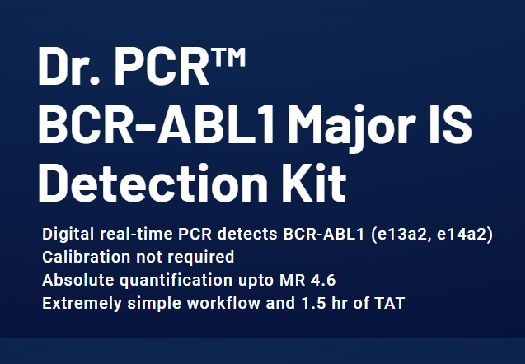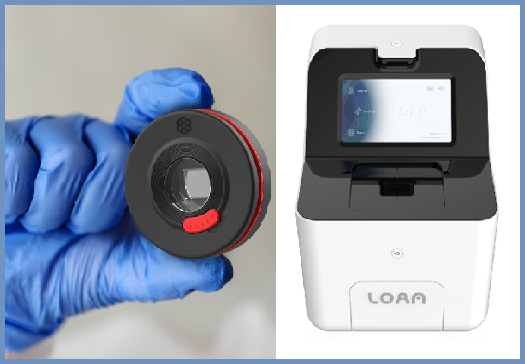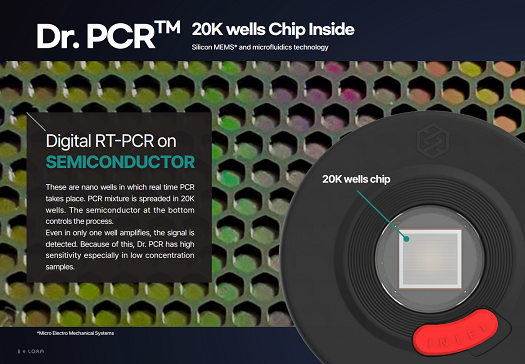GENETIC Diagnostics
GENETIC Diagnostics
Molecular genetic testing is typically used to detect changes in a single gene, and includes direct sequence analysis and detection of large deletion/duplication. Occasionally linkage analysis is still used when the gene is not known. Direct mutation analysis is possible if the gene responsible for a disorder has been identified. Genetic linkage analysis is used when polymorphic markers are available that are closely linked to a disease gene but the gene itself has not been cloned, or when it is difficult or impossible to detect mutations in the gene. For direct mutation analysis, the unit offers a review of the types of mutations that can be detected and the strategies that can be employed for their detection. The unit then describes the types of disorders that are best suited for linkage-based analysis and offers guidance for interpreting the data. The unit also overviews recent progress on high-throughput sequencing system and its possibility for its clinical application. Pharmacogenetics analyzes how an individual’s genetic makeup affects his or her response to drugs. Accurate prediction about drug response is crucial for personalized therapy. Learn about our test used to simultaneously detect and identify a panel of nucleotide variants found within the highly polymorphic CYP450 2C19 gene. xTAG® CYP2C19 Kit v3 is a genotyping panel covering clinically relevant mutations and offering the ability to identify CYP2C19*2 and CYP2C19*3 variants, which together account for approximately 99% of Asian and 87% of Caucasians poor metabolizers, respectively. Over one-third of Caucasians and over 40% of patients of African and Asian ancestry harbor gain-of-function and loss-of-function 2C19 variants.1 These variants are linked to a higher risk of adverse events with certain drugs. The test incorporates multiplex Polymerase Chain Reaction (PCR) and multiplex Allele Specific Primer Extension (ASPE) on the Luminex platforms. The assay automatically determines the diplotype for each sample. Cystic Fibrosis (CF) is a hereditary multi-system disease. There are thousands of people living with cystic fibrosis worldwide. Early detection and informed decision-making are the key to improving quality of life. Our xTAG® Cystic Fibrosis (CFTR) v2 Assays are designed to detect and identify the most common CFTR mutations and variants. They offer the ability to test for the 23 CFTR mutations recommended by the American College of Medical Genetics/American College of Obstetricians and Gynecologists (ACMG/ACOG), as well as the flexibility to use an expanded panel of CF mutations to obtain broad ethnic coverage across populations. The test provides information intended to be used for carrier testing in adults of reproductive age, as an aid in newborn screening, and in confirmatory diagnostic testing in newborns and children. Over 2000 mutations have been found in the CFTR gene which is located on the long arm of chromosome 7. Many of these mutations are rare. Most of the mutations are either point mutations or small deletions of between one and 84 base pairs. The most common mutation is a three base pair deletion that results in the loss of a phenylalanine at amino acid 508 (ΔF508). This mutation accounts for 30 to 88 percent of all CF mutations,1 depending on the ethnic group. Frequencies of other mutations also vary by ethnicity. MOLECULAR GENETIC TESTING HAS THE POTENTIAL TO VASTLY IMPROVE OVERALL PATIENT MANAGEMENT.

OUR SOULTIONS
 Pharmacogenetics
PharmacogeneticsEmpowering Personalized Medicine
Features of the xTAG® CYP2C19 Kit v3:
xTAG CYP2C19 Kit v3 Workflow
 Cystic Fibrosis
Cystic FibrosisxTAG® Cystic Fibrosis
Features of the xTAG® Cystic Fibrosis (CFTR) v2 Assays:
09 August 2022
Viewed 6764 times






